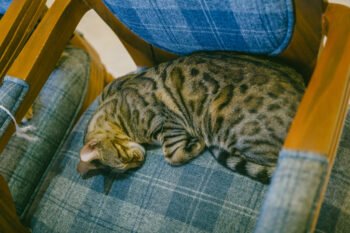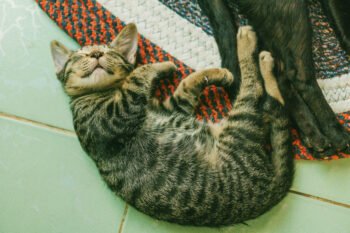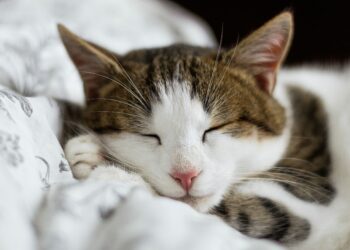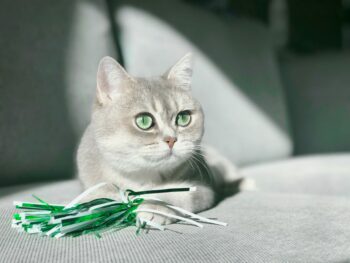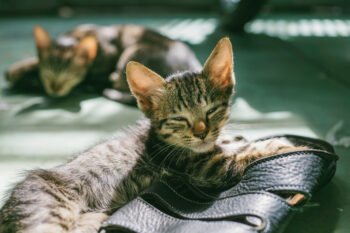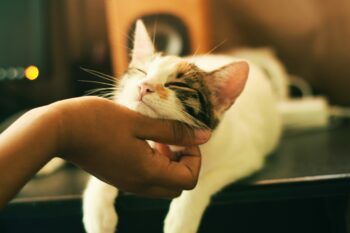In spite of a reputation for being solitary, and as most cat owners will insist, cats are social animals. They are certainly as capable as dogs of forming deep attachments to humans and to other pets. Although it may be difficult to predict–or to understand–the social dynamics among cats in a multi-pet home, clearly at least some pairs form very close bonds. We have all known cats who follow one another, play together, groom each other and curl up together for naps. Even cats who appear aloof develop at least some interdependence with other animals in the household. Cats also form attachments with dogs, and accept all kinds of rabble-rousing and licking from their canine friends. It should come as no surprise, then, that cats can grieve the loss of any family member–including other pets. If your cat has recently lost an animal companion, it helps to be prepared for the following signs (and their solutions):
- Although emotional depression is not a specifically recognized diagnosis in cats, behavioral depression certainly is. Depressed cats may sleep more and generally act lethargic, or they may act the opposite and pace the house for hours. Cats, like people, need the space to feel loss. After all, they certainly act as if they miss a long-time companion.
- Some cats are more playful than others, and are fond of tussling, chasing and just running about with another pet. For these cats, the loss of another cat in the household may result in a dramatic behavioral change. If you notice that your previously silly cat has grown sullen, you can influence her behavior with new toys. Select several new toys from among the type she has favored in the past: simple dangling toys, fleece toys and balls are all interesting if they are also put away between play sessions. Try playing a video of birds or, better yet, present her with a new bird feeder (on the other side of a window, of course).
- Although eating is not a social behavior among cats (as it is with dogs), grieving cats may show a decreased interest in food. For cats, and particularly those who are overweight, anorexia (lack of eating) can lead to a serious liver disorder called hepatic lipidosis. Decreased water consumption may result in crystal formation in the urinary tract, which can cause dangerous obstructions, especially for males. It may help to encourage your cat to eat by offering tastier canned foods along with dry food. In time, your cat should once again show interest in food on her own.
- Changes in the social dynamics of your home can be confusing and may result in aggression between the remaining cats. In some cases cats may begin to urinate and defecate outside the litter box or even to spray urine–both commonly seen consequences of social upheaval or anxiety. Keep tabs on relationships, and monitor litter box usage to spot any potential problems before they become serious. If necessary, add extra litter boxes–especially if your cat is hiding or sequestering herself more than she previously did.
- During this time of emotional distress, it is probably wise to avoid adding new pets to your home for at least several months. Even though your cat was closely bonded with the pet that died, he may not accept the arrival of a “replacement”–now or in the future.
- Cats are resilient creatures. Given time to adapt to the loss of a companion, they will develop new rituals and regain the contentment they once enjoyed.


